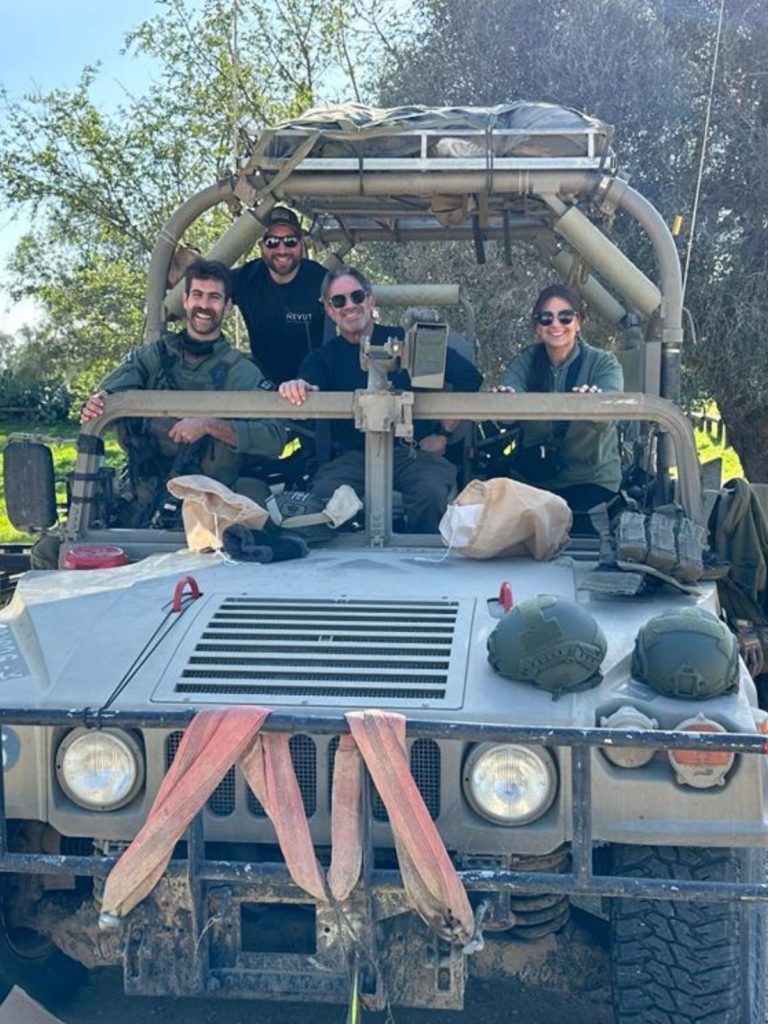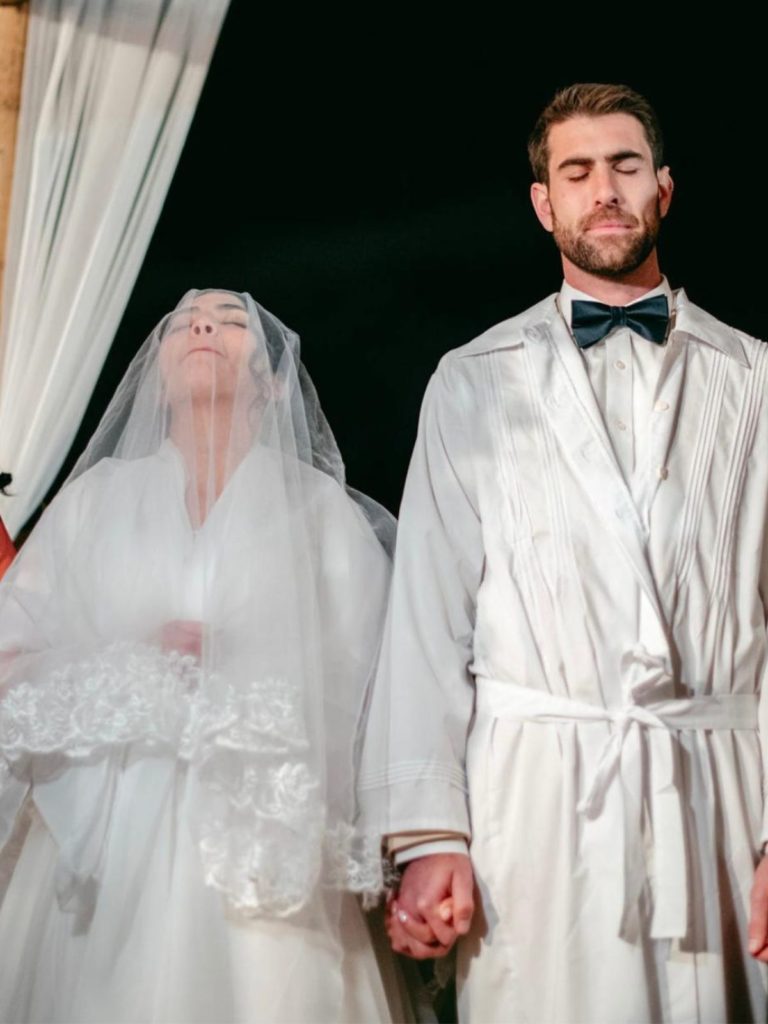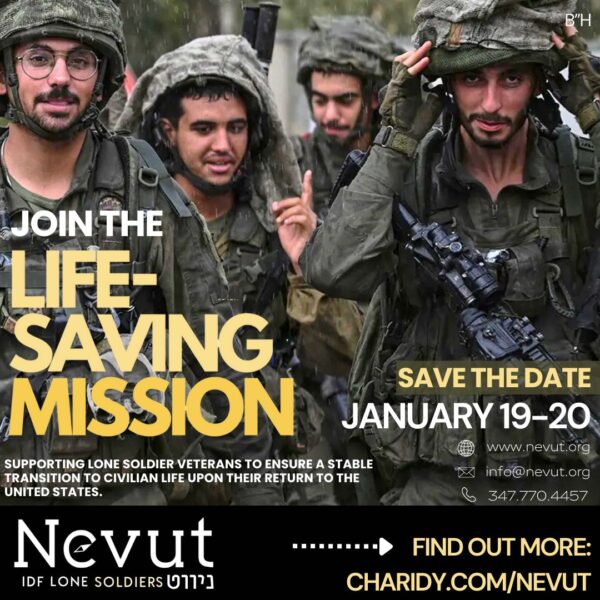In the Hebrew language, ‘Nevut’ signifies navigation, an apt metaphor for an organization deeply committed to guiding Israel Defense Forces (IDF) Chayalim Bodedim (Lone Soldiers) through their challenging transitions from military service to civilian life. Established in 2017 by Rabbi Ari Abramowitz, Nevut has become a pivotal force in addressing the unique needs of these brave Lone Soldiers, young men and women who left the comfort of their homes and families to protect Israel and defend the Jewish nation.
R’ Ari, a veteran of the Netzach Yehuda Battalion, recognized the void in support systems for IDF Lone Soldiers once their service concluded. Inspired by his own experiences and the stories of many like him, he founded Nevut to provide a continuum of care that extends beyond the battlefield. Nevut’s expanded mission is akin to a highway off-ramp, offering a suite of services, preparing these heroes for the eventual return and reintegration into civilian life, in a stable and controllable manner.
Nevut’s approach is comprehensive, offering psychological support, career counseling, and community integration. The organization emphasizes the importance of mental health with programs designed to educate about trauma, PTSD, and resilience. Career advancement services ensure that soldiers have the tools necessary for successful employment transitions, while community and connection programs foster a supportive network among veterans. Together, these services, among others ease veteran integration with society.
I was born and bred in the heart of Far Rockaway. From a young age, I was always drawn to helping others, and deep down knew that one day, I too, would join the venerable IDF. Unbeknownst to me at the time, I wanted to join the IDF, not just to help, but to “help the helpers”. After finishing high school, I went to Israel for a gap year and subsequently drafted into the IDF. My service began in the elite unit Rimon, and 1.5 years later, I graduated as a special forces combat medic. For the following 2 years I served all over Israel, standing guard, protecting the country, while ensuring that Israelis could sleep peacefully at night. Nearly 3.5 years after drafting I returned to civilian life. Yet civilian life for an ex-combat soldier always comes with the additional 20-year responsibility of Milluim- reserve duty. It is there where I currently serve as an active-duty reservist in the 55th brigade, the same unit that liberated Jerusalem in ’67.
Initially, my transition back to civilian life was fraught with challenges, including physical, mental, and emotional pain. Physically, it took me just over half a year to fully recover from the strenuous lifestyle I had maintained. Yet mentally, it was a longer journey. The army, as all armies do, forge swords. When forging a sword, one uses heat and a lot of pressure to form the blade, exposing the base materials to their extremes, finding out what their properties and characteristics are. I was not any different, and the strains of my training forced me to confront some deeply disturbing truths about myself. The process of coming to terms with these truths took much longer to confront, but I was determined not to let my past control my future. Through this process, I came to love myself, notwithstanding the scars of my past. Much like Damascus steel, I came to appreciate the inimitable process of my design.
Another reason for the prolonged recovery of my psyche is that one of the more underrated aspects a soldier receives when putting on the uniform, regardless of their role or position, is the sense of joining a larger group aimed at a higher purpose. This brought me a lot of pride, meaning, and direction to myself, and allowed me to make sacrifices, even those as extreme as facing dismemberment or death, seem trivial in its face. Losing this identity and creating a new one was one of the many struggles in my “coming back home” journey. This challenge is emblematic of just some of the plethora of struggles faced by many Lone Soldiers, regardless of where or when they served, as they attempt to reintegrate into society.
Just before Pesach this year, I spoke to a small crowd at a fundraiser for Nevut. It was there, for the first time, I began to recount just some of my journey over the past 6 months. Having finished my service in late 2018, I thought I had put the army-civilian transition behind me. I had finished college, met the love of my life, and was scheduled to get married on October 18th, 2023. Yet on October 7, amidst the chaos of war, together with my unit, I found myself responsible for clearing Kfar Aza and the surrounding area, eliminating terrorists, hoping to rescue anyone who was still trapped in the area. Several sleepless days later, my unit was tasked with discerning whether residents of Kfar Aza had been kidnapped or executed in cold blood. This harrowing experience, meant that we went house to house checking for signs of life, finding only death and silence in and around the homes we searched. This example is just one among the countless other nightmarish experiences that combat brings forth, and is shared by many fellow reservists and veterans, which further underscores the necessity of a support system for soldiers re-entering civilian life.

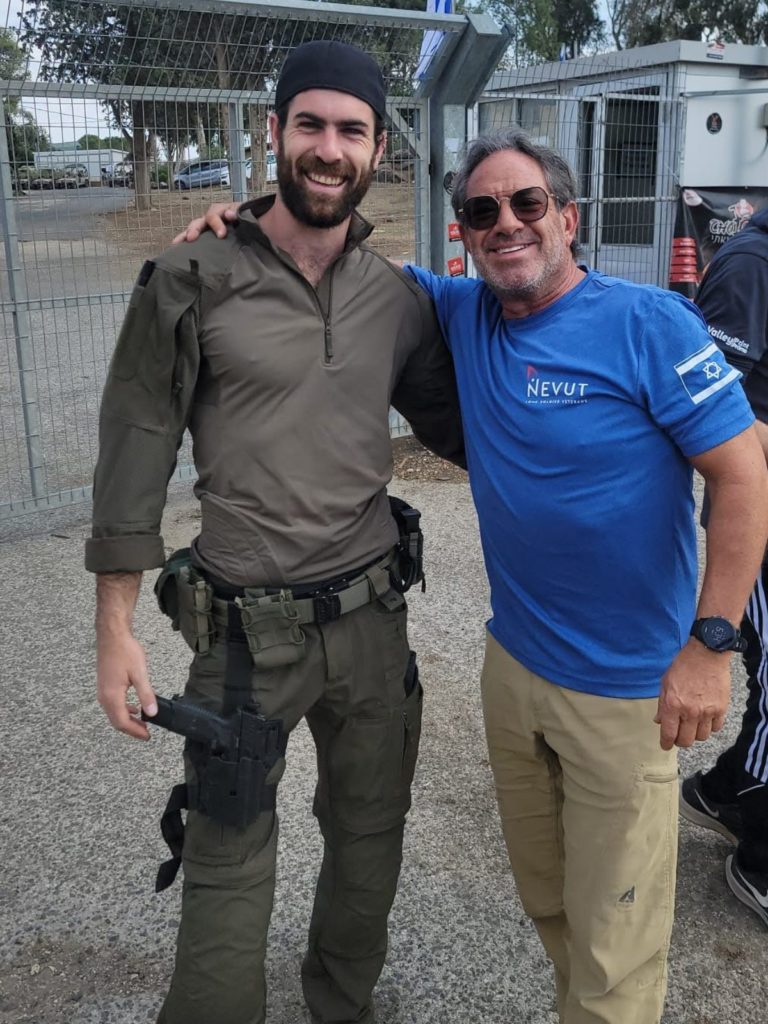
The intensity of these experiences, from the adrenaline of missions to the quietude of the occasional off-day at home, highlighted the stark contrasts and extremes soldiers must navigate. Even now, my personal battle did not end upon being released (once again) from the IDF; it merely changed battlefields. Over the years, through Nevut, I found a community that understood and shared these profound challenges. The organization helps me, and many others, find our middle paths through tailored support ranging from therapy to career guidance, all provided amongst a robust community of like-minded veterans.
The Nevut team commands some impressive team members, many with first-hand experience, and all specializing in working with veterans. Under the stewardship of individuals like Shmuel Feigenbaum, MSW, who served in the Engineer Corps of the Air Force and experienced the impacts of service firsthand, Nevut has flourished. Dr. Eric Pollak, longtime advisor to Nevut, as well as Dr. Miryam Sperka, a distinguished clinical psychologist specializing in running clinical trials for PTSD among veterans, spearhead an innovative healing program at Nevut to profoundly address the needs of the Nevut veteran population. Their collective efforts, along with many others, are grounded in personal experience and professional expertise, and have been crucial in driving Nevut’s growth and impact.
Fundraising and adapting to evolving needs are persistent challenges for Nevut. However, the organization has celebrated numerous triumphs, such as significant fundraising milestones and successful reintegration stories of many soldiers it has supported. These successes, including mine own personal one, are a testament to the community’s commitment to its warriors.
In this week’s Parsha, Emor (22:32) the Pusuk says; You shall not desecrate My Holy Name. I shall be sanctified amidst the children of Israel. I am the Lord Who sanctifies you.
The Rambam writes in Sefer Shoftim: מלכים ומלחמות – פרק ז:טו
… “Once a soldier enters the throes of battle, he should rely on the Hope of Israel and their Savior in times of need. He should realize that he is fighting for the sake of the oneness of God’s Name. Therefore, he should place his soul in his hand and not show fright or fear. He should not worry about his wife or children. On the contrary, he should wipe their memory from his heart, removing all thoughts from his mind except the war…
…Furthermore, he is responsible for the blood of the entire Jewish nation. If he is not valiant, if he does not wage war with all his heart and soul, it is considered as if he shed the blood of the entire people…
The concept of unifying the nation’s heart as one, especially during times of conflict or war, is crucial. It aligns with the idea that when Israel goes to war, it shouldn’t just be a collection of individuals fighting independently, but a united front, where each soldier’s courage and moral integrity reflects the collective values and faith of the entire nation. This unity is essential not only for military success but for spiritual elevation. The first example of the spiritual unity via the physical, was when Bn’ei Yisrael camped at Har Sinai to receive the Torah. Rashi says there “like one man with one heart (Shemos 19:2)”.
The heart is the center for emotions. It is emotions, not logic, that are the initializers of any physical interaction. For example, if someone jumps and scares me, I will instantly react as my body pumps cortisol and adrenaline through me, which in turn will elevate my heart rate and pump blood to my muscles, preparing for a confrontation. After this physiological change, my rational brain must come up with an explanation as to why I reacted the way I did. The Torah commands to us to lead with our hearts, as we say in the beginning of Shema, “and you should love Hashem your God, with all of your heart…”.
When one goes into battle, they must strip away everything except for the feeling of sanctifying the Oneness of God’s name. This includes removing thoughts of his wife and children from his mind. Who then will hold that space for him? His family & by extension, the rest of the nation. While we, as soldiers, are solely dedicated to defending the nation, the rest of the population’s obligation is to hold that space for us. As the Rambam says, it’s the soldiers’ job to be “…responsible for the blood of the nation”. Yet it is the nation’s job to hold his heart. We cannot go into battle, without knowing that there will be someone, behind our lines, that can hold the space for us; that can ensure, that no matter what happens, my “blood” will be able to pump “throughout the body”. As a soldier, it is my job to be the life force, the blood, my immediate family becomes my heart, and my community and nation become the arteries, veins, and capillaries. Together, and only together, can we draw in breath, oxygenate & perfuse this life-force to, the body of Klal Yisrael.
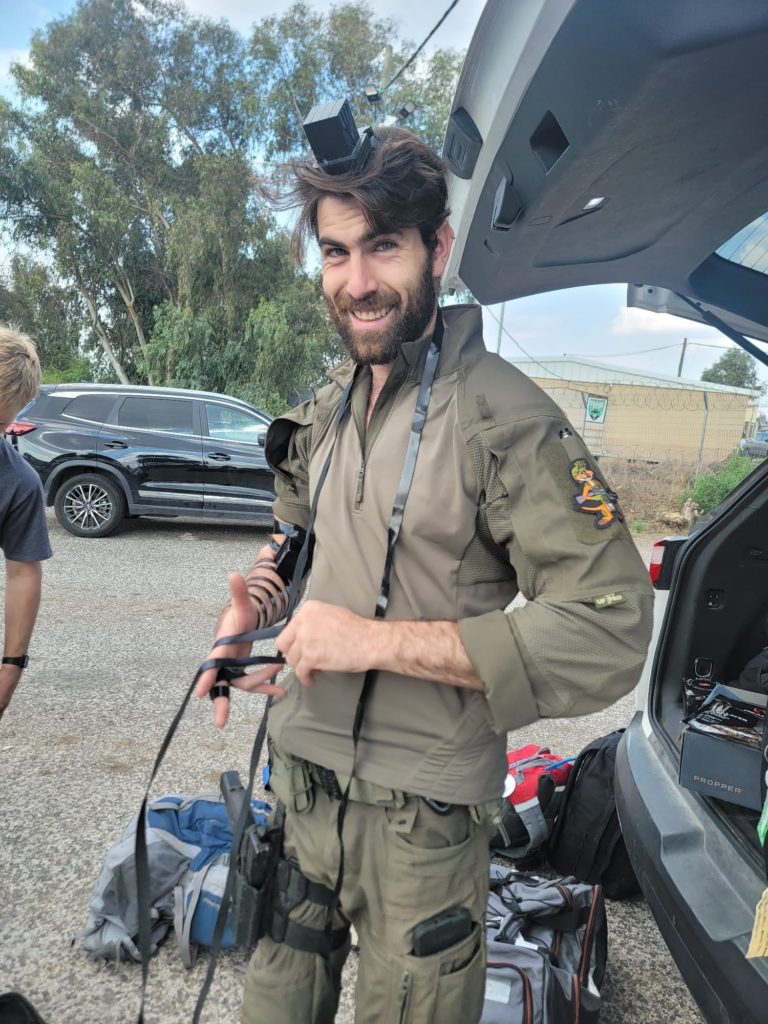

We can take this metaphor even deeper, as when the world is viewed through an individualistic lens, the blood is me, my will, and my actions. Yet blood is only effective if it can be properly transported throughout the body. Serving as the center for my feelings and energies is my family. When properly channeled, my family becomes the force that pushes me forward, giving me the energy to propel forward.
However, this is not enough, for this wave of potential must be pushed in a specific direction for a specific purpose. This is where my community and nation come into play. People, and by extension, groupings of people, are made up of different materials. Some are high pressured, others chill and slower to react, and yet others are amazing communicators with abilities to seamlessly connect with anyone and exchange anything, regardless of their size or importance. Thus, metaphorically, a nation and its people are most apropos to the circulatory system, each with its own unique, yet equally important job, ensuring that no limb is forgotten.
But the Torah warns, “And the officers shall continue to speak to the people and say, “What man is there who is fearful and fainthearted? Let him go and return to his house, that he should not cause the heart of his brothers to melt, as his heart.” (Devarim 20:8).
We see from here, that, regardless of the reason, an individual’s failure to unite is contagious, and therefore he must be isolated. Yet, where is this person supposed to retreat to? To his house. The Torah does not permanently revoke his warrior status, it simply is commanding him to go back to his roots, his source of strength. Once he fixes and is reunited with his Why, he can now overcome any How. In this state, he would be allowed to rejoin his comrade-in-arms, and by extension, his people.
Politics aside, leading up to October 7th, Jews experienced a year of discord, strife, and baseless hatred. God chose to give us a painful reminder. Plucking individuals, bruising families, and scarring a nation. Yet the body is resilient. The power of the mind supersedes everything else. However, a person can only harvest, channel, and utilize their own individual mind power. Thus, when a person makes that decision, he will inevitably draw from the larger power source of his family, and by extension the nation.
Controversial as this may sound, in my eyes, this war is a gift. It is giving us the opportunity to reunite with one another, in ways we never expected. Be it as simple as donating equipment, money, or even being present to just lend an ear or give a hug, we all have a way of helping us. For the soldiers’ problem is our problem.
Nevut, has been on a mission to do just this. With leaders like Ari, whose devotion to his people is exceptionally commendable, as both soldiers on, and returning from, the battlefield know that there is a place they can come to, to help channel their life-force in the proper direction. As a nation, we have already paid too steep a price for what we lost, our unity. Let us all, individually, find a way to support our soldiers. For they are our blood, and we are their body.
Looking forward, Nevut is dedicated to expanding its reach and depth of services. Nevut is excited to announce a new partnership with Heroic Hearts Project, launching a groundbreaking program specifically tailored for IDF Lone Soldiers grappling with PTSD, depression, and other post-war challenges. This collaboration introduces a nine-week program culminating in a five-day group retreat, designed to provide safe, supervised access to therapies known for their potential to significantly alleviate psychological distress.
The ongoing support of donors and volunteers is vital for Nevut’s mission. Engaging the community through events and initiatives remains a priority to ensure that every returning soldier receives the support they (and we all) deserve.
Nevut embodies the spirit of mutual responsibility—a fundamental tenet of Jewish ethos. By supporting our soldiers, we honor their sacrifices made for us, and ensure that their return home is safe, supportive, and successful. It’s painless to succumb to the chaos of war, yet strenuous to embrace the silence of home. With your help and Nevut’s guidance, many more soldiers will navigate this transition successfully, finding peace within themselves. It is easy to die for something, it is much harder to live for it. May our individual acts of servitude bind us into a collective of strength, and may this unity bring a holistic sanctification of Hashem, meriting us to see Mashiach today! To support Nevut’s mission, please donate at nevut.org/donate.
